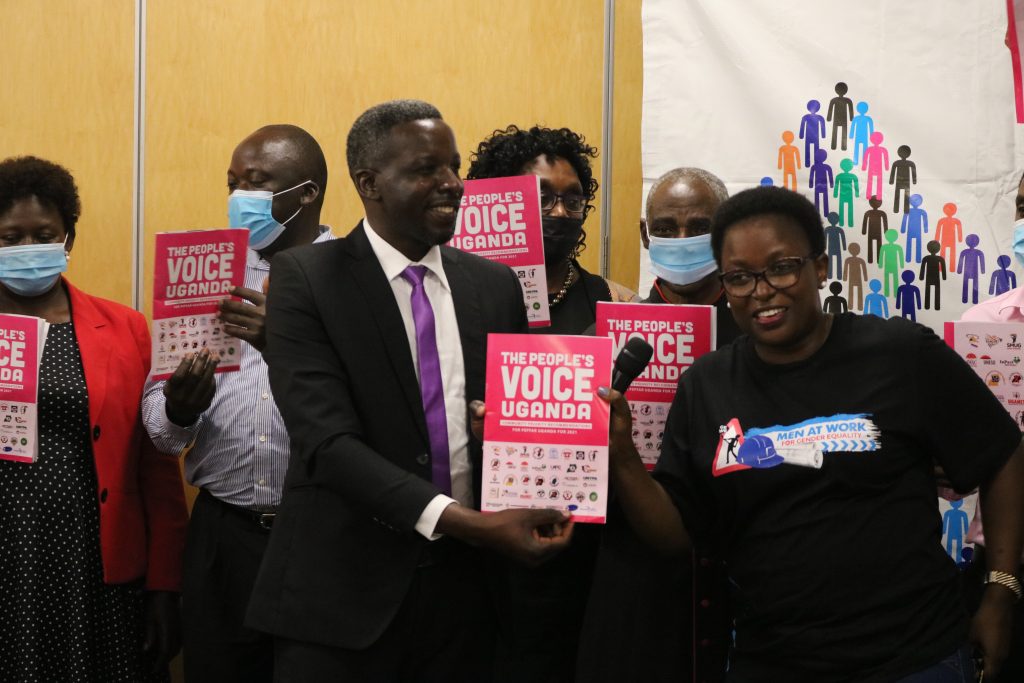
Through its COP20, PEPFAR is supporting ICWEA, HEPS Uganda and SMUG to implement a scale-up phase of the CLM model of health services delivery in Uganda. The CLM model trains, supports, equips, and pays members of directly affected communities to themselves carry out routine, ongoing monitoring of the quality and accessibility of HIV treatment and prevention services. Monitoring focuses on collecting quantitative and qualitative data through a wide variety of methods that reveal insights from communities about the problems and proposes solutions to health service quality problems at the facility, community, sub-national, national, and even international levels. Another key component to the CLM concept (separating it from other modes of quality improvement) is the full integration of evidence-based advocacy into a cycle that brings new information to the attention of decision-makers and holds them accountable for acting on that information.
Communities have been represented in these meetings and this year, 7 representatives in the diversities of Faith-Based Institutions, Young People, Key Populations, PLHIV and Community-Led Monitoring Core Team are representing the community. The community representatives have shaped the discussions from a community point of view using evidence documented in the “People’s Voice”. ‘The Peoples Voice’ is the people’s or community country operational plan of what their priorities are in terms of HIV/TB programming. The people’s voice has been generated through a highly consultative and evidence-based process with people living with and at high risk of HIV/TB. The People’s Voice 2021 has thus generated through data triangulation of CLM pilot results from the routine clinic monitoring of 32 health facilities from 28 districts across 13 PEPFAR implementing mechanisms; consultative meetings with PLHIV and key populations at the National Level, Regional dialogues with a diversity of stakeholders (PEPFAR IPs, district leadership both technical and political), and non-facility based focus group discussions with communities of people living with and at high risk of HIV.
PRIORITY RECOMMENDATIONS:
There were many emerging views from the communities as reported by the monitors. However, the most prominent of all included the following;
Expanding high-impact treatment retention efforts, as such PEPFAR requested to invest in PLHIV organizations to enable them to design and implement ongoing, comprehensive treatment literacy and peer-led support systems. “Dream bigger with DREAMS” with investment to expand quality prevention for women and girls in all their diversity. Treatment and prevention for Key Populations(KP) focusing on more investment in Drop-In Centers, KP Program funding, support for discrimination. Index testing with the utmost respect for human rights and observance of ethics. People with Disabilities; focus being on investment in community and facility infrastructure that will eliminate structural barriers for PWDs’ access to services. Pediatrics as well as issues around Orphans and Vulnerable Children [OVC], PrEP, Structural interventions; GBV, Economic empowerment, and human rights. T.B, being one of the biggest causes of mortality among PLHIV, the suggestion is to integrate TB prevention with the grassroots communities most especially TB survivors. These among a few others were rendered priority and were presented to PEPFAR and other Key stakeholders.
Download the full version of the People’s Voice below:



